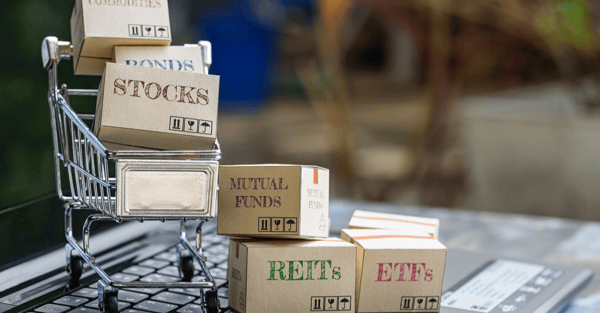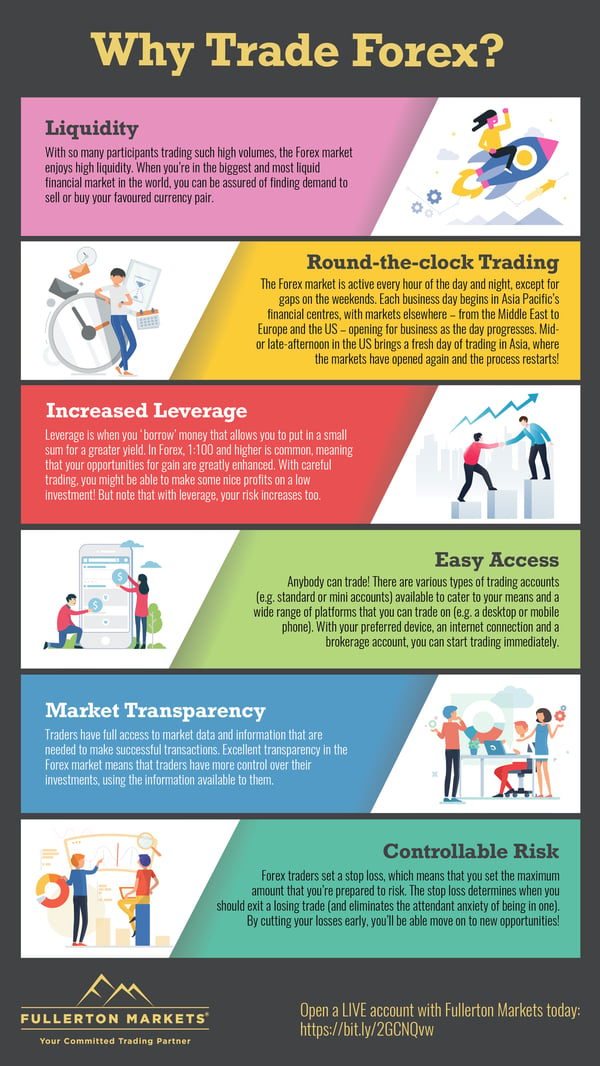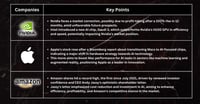Stocks are back on the rise, especially tech stocks. This would make the bear market that the coronavirus pandemic has induced the shortest on record.
But is the threat of recession really over?
Rather than being complacent, you should focus on cashing in during the coronavirus crisis. Because even when a market is slow or slowing down, there are still opportunities to make money.
What can you do?
Learn how to navigate and recover from a bear market
The market officially entered a bear market in the second week of March when the Dow closed down over 5% and down 20% from February's intraday high. Prices of securities plummeted following sweeping negative sentiments and views over the COVID-19 crisis.
If your investment portfolio is stock-heavy, its end value has naturally dropped.
Should you start selling stocks and buying more bonds?
Not just yet.
Remember that the sudden collapse of the market is driven by the pandemic and not due to tighter monetary policy, which would have resulted in a standard recession. The market will recover, although no one can really say what this will look like given that there are so many factors at play.
So, think long term. A slow economy is part of a market cycle and your best course of action is to navigate through it and ensure you recover with little to no lasting damage on your portfolio.
Avoid panic selling
As previously mentioned, the market will recover, so there's no need to sell all your stocks to save what little is left of your personal finance.
It's understandable that you have your fears. There's widespread fear over COVID-19 now and how it continues to batter the economy.
But didn't Warren Buffett say to "Be fearful when others are greedy, and be greedy when others are fearful"? Time to get greedy.
Because when this crisis is over, you'll see stock prices that will set new profit records for decades, and you'll be there to reap what you've sown.
Hold on to your long-term investment plan
Coronavirus is not the first pandemic to shake down the market and definitely won't be the last. So selling your stocks now will be the biggest mistake you'll make.
It’s best to hold on to them and wait for the market to recover.
Market analysts predict stock prices may see positive movement by the end of summer. If this doesn't happen and the interest rates hit zero or close to it, you can always add equities to your portfolio.
Buy bargain stocks
During a bear market, take advantage of stocks that have hit rock-bottom prices. That security you've always wanted to own could be within your budget now.
To gain maximum profit, especially during market recovery, invest only in:
- Companies with the strongest balance sheets
- A business that can weather the crisis rather than be compromised by it
- Index funds for a well-diversified portfolio
- Financial vehicles that you know and understand
Whatever you do, however, avoid excessive buying or selling. There are fees for every transaction, after all. If you keep moving a big percentage of your portfolio in just a few days, trading becomes expensive and returns are reduced.
Asset classes that offer trading opportunities in a slow(ing) market

Seasoned investors know a downturn is just part of a cycle. Most of them either wait it out or look for opportunities in the midst of a crisis.
You should, too.
Learn the secrets of a seasoned investor and how they keep calm during a major shakedown.
Some investment products have been known to perform well in a bear economy, and you should focus on them to keep your portfolio strong regardless of what goes on in the market.
Government Bonds - A conservative and risk-off investment with no substantial loss in a slow economy. Think short-term bonds and avoid long-term, high-yield, and emerging market bonds.
Managed Futures - With a recorded history of increased returns in times of crisis, as seen between 1994 and 2008, managed futures is one of your best investment options at these times.
Gold - A physical asset you can buy and sell, gold has long been considered a safe-haven asset.
Cash - Physical money remains strong in a down market and outperforms equities all the time. So you might want to keep a little more cash now.
Utility Stocks - Safe from the risks associated with interest rate and pay higher dividends. Now is the best time to take advantage of these slow-growing utility companies.
Consumer Staple - Holds its value better during a recession. Invest in products people are going to use every day such as paper towels and coffee.
Healthcare - Provides a safe investment option in a late-cycle environment. Invest selectively, however. Choose products that are in demand in the coronavirus bear economy.
Real Estate -The industry has provided the most stable and highest return in the long term, with the multifamily sector displaying the most resilience, as shown in this 2020 market report, despite the unstable market conditions.
This is why many investors are counting on the security that properties provide in these trying times. Avoid retail and hospitality REITs, however.
Forex - Considered recession-proof, trading currencies during a world crisis is something you should explore. Invest in currencies with the right conditions. More on this in a little bit.
As you can see, there are still many trading opportunities even in a bearish economy. As long as you think long term, you don't need to panic and make investment mistakes you're going to regret.
How is Forex a recession-proof vehicle?

The coronavirus recession is considered to have had the steepest and worst impact on the global economy, more than the Great Depression and the Great Recession combined. There's no telling how long it will wreak havoc across world economies, too.
However, there's one thing you can hold on to in the midst of this crisis – Forex.
It's usually unaffected by recessions, so it won't collapse as easily with the market similar to stocks and commodities.
But how is this possible?
A currency's exchange rate is typically influenced by the monetary policy of a nation's central bank and the demand for international trade. Recession, on the other hand, is affected by the rise in unemployment, a drop in GDP, and other key indicators and signs.
So, unless the central bank tries to weaken its currency to help the economy recover during a recession, Forex is safe from a downturn.
Currencies are always traded in pairs. When one currency weakens, the other one strengthens. With the USD/JPY pairing, for example, traders are selling or shorting the dollar because the currency has slowly weakened during the coronavirus crisis, while the Japanese Yen has stabilised.
One thing to take note of is that, statistically, the US Dollar has not shown a recession-induced weakening or strengthening since it was allowed to float freely in the early 70s.
Moreover, Forex trading centres are available across the globe and trading is online-based. At any point in time, you can buy and sell currencies and earn profit round the clock.
Apart from being recession-proof, there are many benefits to trading Forex as shown below.

What does it matter if Forex is recession-proof given the current conditions?
Forex trading is not affected by prevailing market conditions. Currencies can still be traded whether the situation is bearish or bullish.
So, given the slowing economy, trading currencies will help you continue to earn even in a bear market. This is one of your best options if you want to cash in on the coronavirus crisis.
Moreover, the foreign exchange market can't crash and you're trading a currency pair where when one goes down the other goes up.
To maximise every trading opportunity, go short, which in Forex speak, means short selling to profit from a possible drop in the price of a specific financial instrument.
To illustrate:
1 USD is equivalent to 107 JPY or USD/JPY = 107.
Given the bearish economy, you go short with the expectation of a decline. As of this writing, the USD/JPY dropped to the 106.80 price zone with more declines to be expected.
If you sold at 107, then you earned a profit from the 0.2 difference.
That's USD2 since 1 pip is equivalent to USD10 in a standard lot.
Trade currencies now: Why get into the Forex market in the midst of the coronavirus crisis?

You're stuck at home.
Trading is an online activity, something you can do during a lockdown. As long as you can access your account, you can trade.
So even when you're stuck at home and unemployed, you're making money. If you're working from home, then you have another income stream.
You should also remember that the Forex market accepts trades 24 hours, so there's an opportunity to earn at any time of the day or night.
Why not make this a profitable way to pass the time?
The required initial investment is low.
It doesn't take much to open an account and start trading.
Fullerton Markets only requires a minimum deposit of USD100 or the equivalent value in any currency to open and fund an account.
Use your credit card or digital wallet. We also accept local transfer and bank wire transfer.
You have the tools to use.
Your lack of knowledge about Forex is not a hindrance. Through copy trading or mirror trading, you can buy and sell currencies like a pro. That's because you're copying strategies from an actual trader.
Expand your knowledge: Check out this Definitive Guide to Forex Trading for Beginners and the Uninitiated.
You can also open a demo account so you can get a feel of the Forex market in an environment that simulates actual trading activities. No need to get into trading blindly.
As you can see, now is the best time as any to get into Forex trading. Rather than waste your time being unproductive, use your time profitably, and invest in foreign exchange. Cashing in during the coronavirus and in a bear market is easier than you think.
Ready to grow your wealth in the world's largest financial market? No better place to start than right here with us! Begin trading with Fullerton Markets today by opening an account:
You might be interested in: Forced to be a WFHer? Here's How Newbies Like You Can Stay Productive at Home during COVID-19














